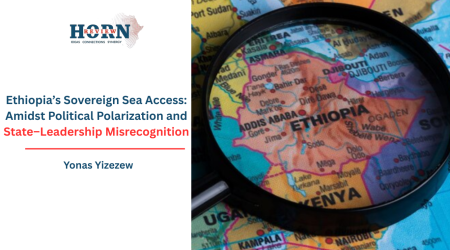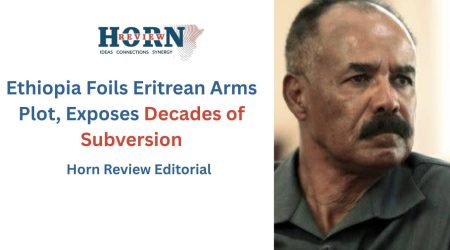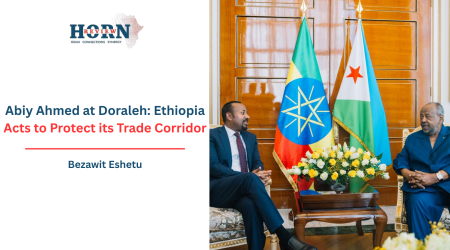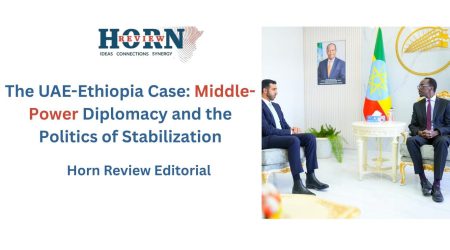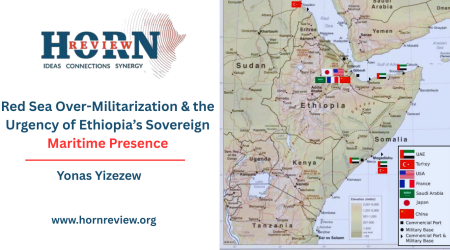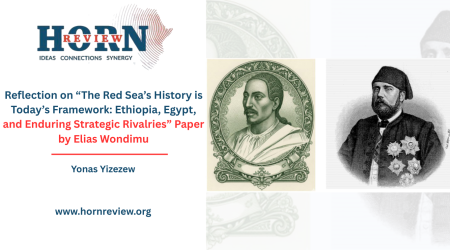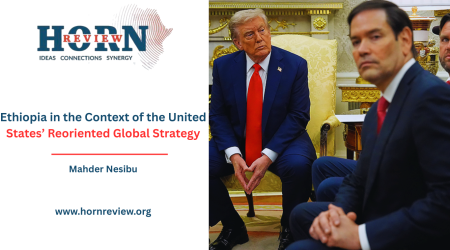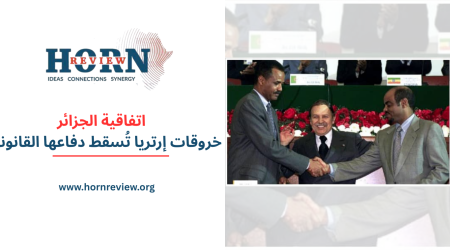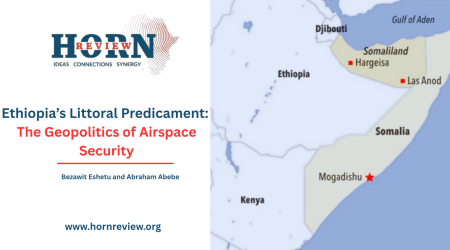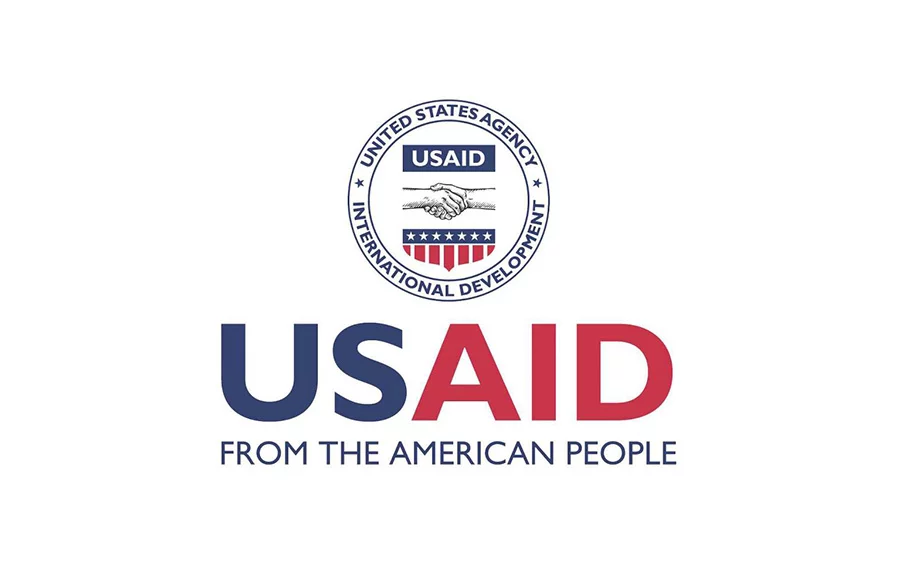
6
Feb
The Impact of USAID’s Suspension in Ethiopia
The United States Agency for International Development (USAID), established in 1961, has been a key U.S. foreign policy instrument, aimed at addressing poverty, promoting democracy, and ensuring long-term stability in developing nations. USAID’s work, especially in Africa, has been vital in tackling issues like food security, healthcare, and democratic governance. However, recent discussions about merging USAID with the U.S. State Department or reducing its funding have raised concerns about the future of U.S. foreign aid. For countries like Ethiopia, these changes could have devastating consequences.
USAID’s Role and Impact of Its Suspension
USAID’s mission has aligned with U.S. foreign policy goals, using development aid to improve lives and strengthen America’s influence globally. Proposals to close or merge the agency with the State Department stem from arguments that this would lead to a more streamlined and efficient allocation of resources. However, critics argue that reducing USAID’s independence would limit its ability to address the complex needs of developing countries. The agency’s expertise and focus on humanitarian issues could be compromised, weakening its impact worldwide.
In Africa, where USAID’s programs are critical, the agency’s closure would create a vacuum that other global powers, particularly China, could utilize. With its growing presence in Africa, especially through initiatives like the Belt and Road Initiative, China offers financial aid with fewer conditions, which could lead African nations to become more reliant on Chinese investments. However, this often comes with risks, such as increasing debt and limited attention to democratic reforms.
Ethiopia is one of the largest recipients of U.S. foreign aid, receiving over $1 billion annually through USAID. The agency supports various sectors, including agriculture, food security, healthcare, and education. USAID has been critical in addressing Ethiopia’s recurring food crises, providing emergency food relief, and advancing agricultural development. Additionally, its contributions to healthcare especially in combating HIV/AIDS and improving maternal health have been indispensable.
Despite its positive impact, USAID’s work in Ethiopia has faced challenges, particularly during the Tigray conflict, where concerns arose about diverting aid to military factions. Such issues show the difficulties humanitarian organizations face in conflict zones, where political and security complexities can hinder aid effectiveness. Nevertheless, USAID remains a crucial player in Ethiopia’s development.
Geopolitical and Diplomatic Dimensions
USAID plays a crucial role in U.S. foreign policy by providing humanitarian aid and advancing geopolitical objectives, such as promoting democracy and security. In Ethiopia, USAID’s aid programs aimed to address human rights abuses and encourage the Ethiopian government to engage in peace negotiations during the Tigray conflict. This dual mission reflects the agency’s broader role in shaping diplomatic outcomes while delivering critical assistance. Under the leadership of Samantha Power, USAID’s influence became more pronounced as Power used the agency as a tool for humanitarian relief and political leverage in the context of the Tigray conflict.
During her visit to Ethiopia in August 2021, Power sought a meeting with Prime Minister Abiy Ahmed, however, she was rebuffed, signaling rising tensions between the U.S. and Ethiopia. This was seen as a significant diplomatic snub, as Power had increasingly criticized the Ethiopian government for its role in the conflict. After her return to the U.S., Power made public statements accusing Ethiopia of refusing to engage in peace talks and focusing on military action instead. However, she remained silent on the alleged atrocities committed by Tigray rebel forces, highlighting the one-sided narrative the Biden administration promoted. This selective criticism contributed to the imposition of sanctions on Ethiopia, signaling a clear shift in U.S. foreign policy.
Power’s approach underscored the complex relationship between aid and diplomacy. USAID’s role was pivotal in exerting pressure on Ethiopia, and the sanctions that followed reflected how U.S. foreign policy leveraged aid to influence governmental actions. If USAID were to be merged with the State Department or eliminated, the U.S. would lose a vital tool for influence, allowing countries like Ethiopia to potentially turn to alternative powers such as China or Russia for assistance. China’s aid, while focusing on economic development, lacks the emphasis on democratic governance that U.S. aid typically promotes, which could alter the geopolitical balance in Africa. The Ethiopian case demonstrates how the intersection of humanitarian aid and political strategy can reshape international relations and influence global power dynamics.
Implications on Africa
The recent termination of 10,000 employees at the U.S. Agency for International Development (USAID) has resulted in contrasting reactions. For some, this move represents a long-overdue shift, but for many, it signals a crisis that threatens the stability and growth of African nations, especially in countries like Ethiopia, which are heavily reliant on U.S. aid.
One of the key debates surrounding this issue is the question of over-reliance on U.S. aid. Critics argue that African countries have become too dependent on aid, despite having vast natural resources that could create self-sufficiency and economic independence. This dependence, some argue, has created a cycle where African nations continue to rely on external support rather than developing internal capabilities and infrastructure. Proponents of this view believe that the suspension of aid could potentially force these nations to re-evaluate their development strategies and reduce their reliance on external assistance.
Others point to the potential devastation that could arise from its suspension. Across the African continent, USAID funds critical sectors such as health, education, and agriculture. In countries like Ethiopia, where millions of people depend on U.S.-funded programs, the loss of this support would have dire consequences. Public health programs aimed at combating disease outbreaks, agricultural projects designed to alleviate food insecurity, and educational initiatives crucial for the future of millions could come to a halt. The suspension would also lead to widespread job losses, further exacerbating the economic challenges already faced by these nations. For many, the idea that USAID could simply be eliminated without catastrophic effects seems unrealistic.
These contrasting perspectives present an important question: how should we assess these arguments? On one hand, there is a valid concern that Africa’s reliance on aid has stunted long-term development, preventing countries from achieving true autonomy. However, this view overlooks the immense challenges that African nations face, including historical exploitation, political instability, and economic inequality, which have made it difficult for many countries to break free from aid dependency. A sudden cessation of USAID support risks worsening these problems, pushing vulnerable populations into deeper poverty and exacerbating health and food crises.
Equally, it’s important to acknowledge that the status quo, where many African countries remain dependent on aid cannot continue indefinitely. There must be a long-term strategy for building sustainable economies that don’t depend on external assistance. The solution may lie in rethinking aid, focusing on programs that prioritize capacity-building, infrastructure development, and long-term economic growth. Instead of withdrawing aid entirely, a more strategic and tailored approach could help African countries transition from aid dependency to self-sufficiency.
Ethiopia, as one of the largest recipients of U.S. aid, will lose significantly from the suspension of these programs. Many projects in Ethiopia support food security, health interventions, and job creation, all critical in a country struggling with poverty and recurrent famine. If USAID pulls out, it could create a power vacuum that would likely be filled by other actors, notably China, which has been increasingly involved in Africa through its Belt and Road Initiative. This could alter the future trajectory of African nations, shifting the focus toward rapid economic growth with limited attention to the socio-political foundations necessary for sustainable progress.
The suspension of USAID is a challenging issue with far-reaching consequences. While there is substance to the notion that African countries should minimize their reliance on aid, such a transition must be managed with caution. An abrupt cessation of funding would most certainly have disastrous implications, particularly for vulnerable populations in nations such as Ethiopia. The difficulty, then, is to establish a balanced strategy that decreases reliance on aid while preserving the crucial support that millions of Africans rely on for sustenance. Rather than eliminating USAID, the priority should be to improve its policies for promoting sustainable development, ethical and accountable governance, effective assistance and aid, and economic independence.
By Jalene Tesfaye ,Deputy Director at Horn Review

